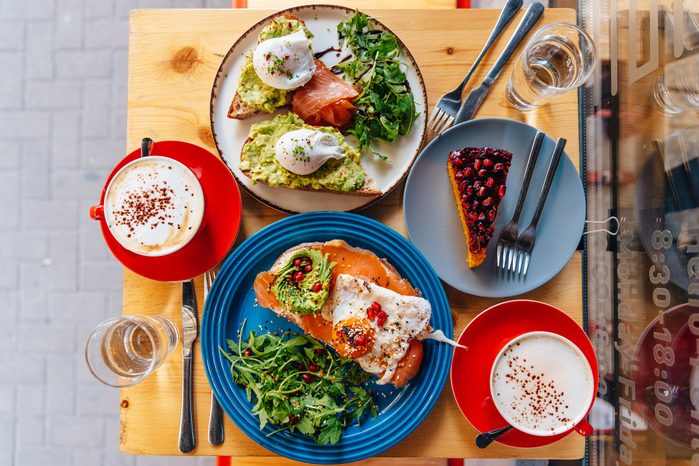
The least-discussed parts of our body are no less precious than all the others…and if you could keep your vaginal health balanced and well, wouldn’t it be worth considering?
Let’s start with the vagina’s microbiome: According to the Cleveland Clinic, bacterial vaginosis “is the most common vaginal problem for women and people assigned female at birth” between the ages of 15 to 44 years—so common that around 35% of people with a vagina will experience bacterial vaginosis, which happens when normal bacteria that live in your vagina overgrow, causing a bacterial imbalance and changes in vaginal pH…along with potential discomfort.
The Most Breathable Women’s Underwear You Can Buy, According to Gynecologists
A 2022 study showcased that what you eat plays a very important role to your vaginal health. As one example, this study showed that an “ovo-vegetarian diet” filled with vegetables, beans, whole grains and eggs decreases the odds of bacterial vaginosis (BV). Since the study also showed a diet high in sugar, red meat, fried potatoes, refined grains, visceral meat (organ meats), and sweet drinks increases the chances of developing BV, a great place to start supporting your vaginal health would be to minimize processed and sugary foods.
Check out these top 10 foods your vagina needs to eat to keep it happy and healthy that you can easily start incorporating into your diet today.
For daily updates to keep your whole body content, get The Healthy @Reader’s Digest newsletter
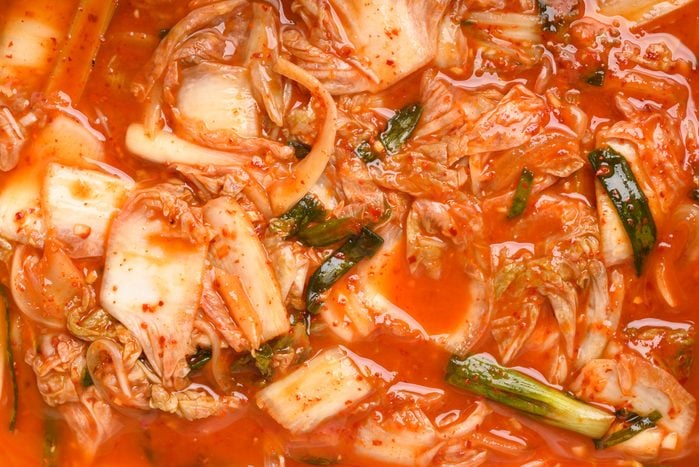
Kimchi
Foods that contain probiotics, which you might think of as healthy bacteria, are very important to include in your diet for vaginal health. Fermented foods, like kimchi (a Korean dish made of fermented veggies), are bursting with healthy bacteria.
Other fermented fare such as sauerkraut, pickles, and miso, can help maintain a healthy population of gut flora in your body—which includes your vagina, says Katherine Thurer, MD, an integrative gynecologist at the Raby Institute for Integrative Medicine at Northwestern in Chicago. Add some sauerkraut to your eggs for breakfast or some kimchi as a side with a stir fry dish.
11 Probiotic Foods You Need to Work Into Your Diet Right Now
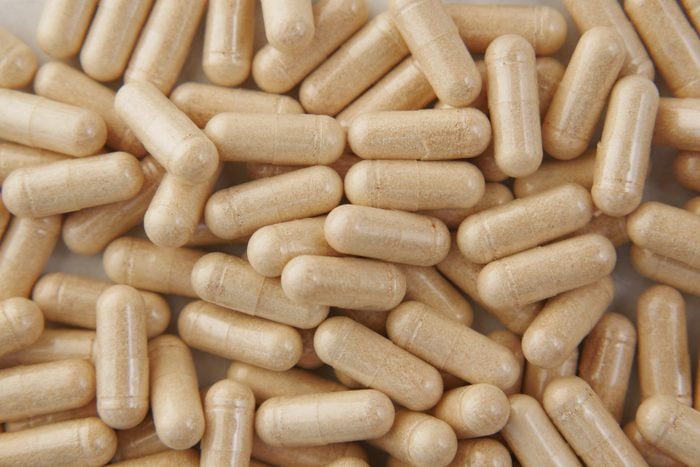
Garlic Supplements
Garlic has antibacterial and antifungal properties that may help fight off infections, including bacterial vaginosis, says Kate Morton, MS, RD—registered dietitian and owner of Funk It Wellness. “Incorporating garlic into your diet may help reduce the risk of BV, according to a 2014 study,” Morton says. It’s important to note the study was done on oral garlic supplementation, not fresh garlic.
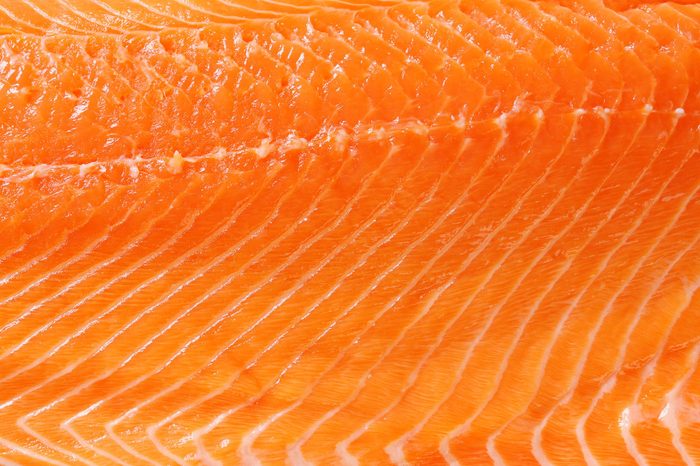
Salmon
Fatty fish supply plentiful amounts of omega 3 fatty acids. “Essential fatty acids are found in the membranes of every cell in our body,” says Staci Small, RD, owner of The Wellness Philosophy in Indianapolis. “They’ve been shown to help improve vaginal dryness in menopausal women,” she says.
Bone up on fatty fish like salmon two times a week—or try to include these other omega 3-rich foods that aren’t fish, if you’re not a huge fan. On other days, Small recommends taking a high-quality fish oil supplement.
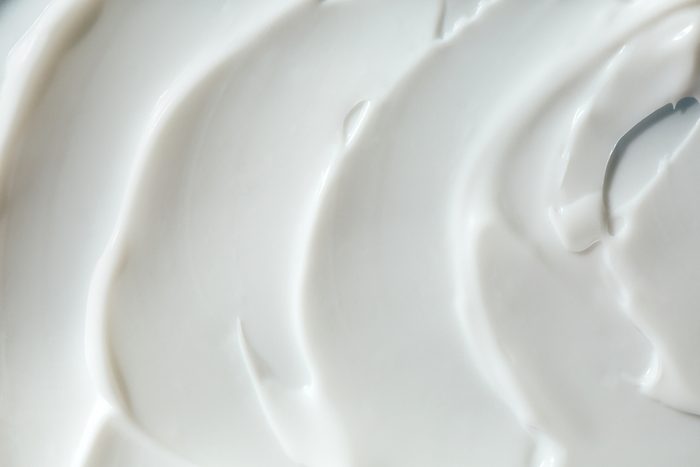
Yogurt
Rich in probiotics, yogurt can also help populate your gut (and vagina) with healthy microbes, says Dr. Thurer. However, because sugar feeds bad bacteria in your system, which can throw off the intricate balance in your body, choose plain yogurt and add fruit yourself, she advises.
Something else to try is kefir, a fermented dairy product. “Kefir contains a variety of probiotic strains that may help improve vaginal health,” Morton says, adding that it is well documented, such as in one 2022 study in Frontiers in Cellular and Infection Microbiology, that probiotic-rich foods like kefir are an important part of maintaining optimal vaginal health.”
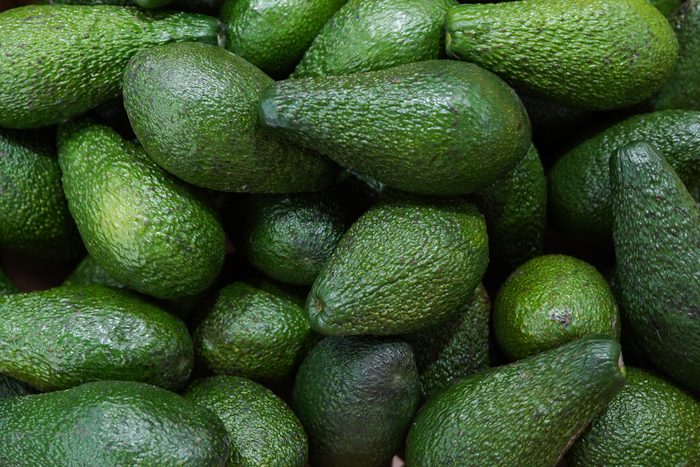
Avocado
An avocado a day for your vaginal health! Healthy monounsaturated fats like avocado, nuts, and olive oil play a key role in helping your body make sex hormones. If those hormones are askew (for example, if estrogen levels are too low), you may notice that your vagina feels drier than usual, which can make sex painful. Don’t fear dietary fat—your vagina depends on it!
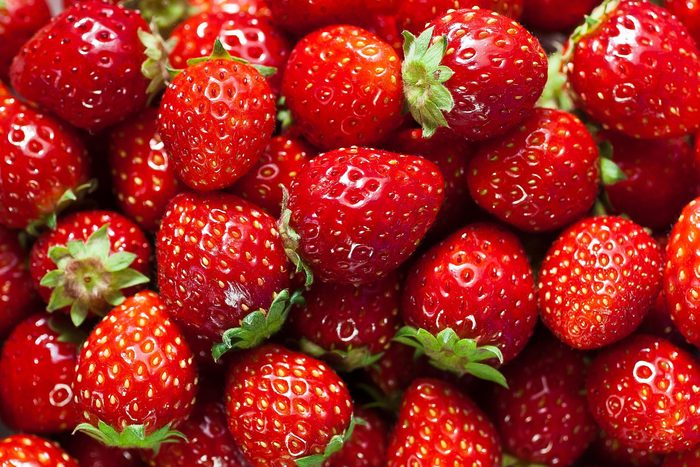
Strawberries
Surprise! Strawberries offer more vitamin C than an orange. “I find women aren’t often getting enough vitamin C,” says Small. The vitamin is needed for your adrenal glands, which produce both sex hormones and the stress hormone cortisol. In addition, Small points out, vitamin C plays a pivotal role in collagen synthesis, which is essential for muscles and tissue elasticity. Of course you need that all over your body, including in your vagina.
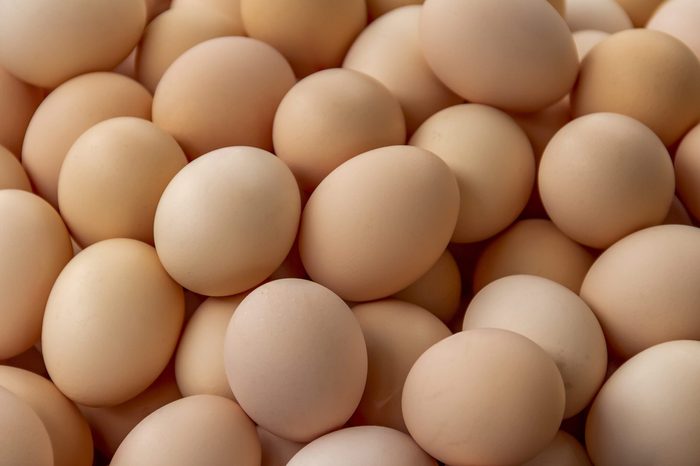
Eggs
One egg delivers a good dose of vitamin D. And being deficient in vitamin D sets you up to be more at risk for bacterial vaginosis (BV), perhaps because of the vitamin’s role in the immune system of the vagina.
This 2015 study showed how taking a regular vitamin D supplements for 15 weeks helped treat bacterial vaginosis. The researchers concluded that it may even help prevent the infections in people who are already low in vitamin D. A 2019 study in the Journal of Menopausal Medicine showed that vitamin D improved vaginal pH, and decreased vaginal dryness in menopausal women. Talk to your doc about honing in on the right vitamin D supplement for you, but it’s also smart to eat more foods that are D-plentiful, like whole eggs.
The 11 Most Frustrating Problems You Didn’t Know Are Signs of Menopause
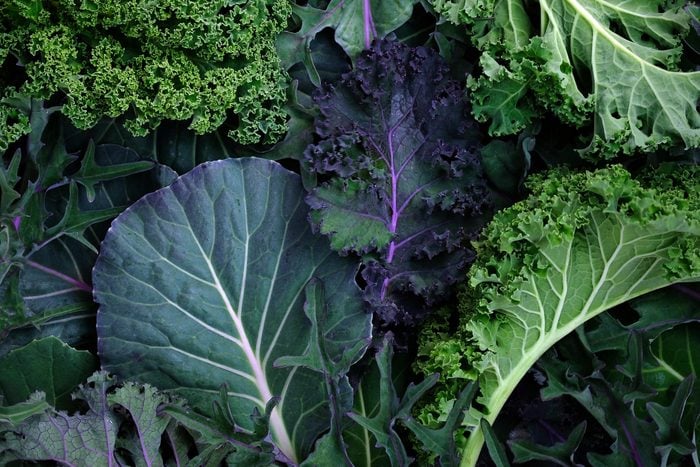
Kale
Don’t forget to include dark, leafy greens in your diet! Cook some kale and pile a bunch on your plate, or make a yummy kale Caesar salad. A couple cups of kale deliver a generous dose of both calcium and magnesium—two minerals that can be tough to find, but that you need for proper muscle tone and function, including in and around the vagina.
Other sources of calcium include dairy, of course, while you can find magnesium in beans and nuts. Magnesium is also highly beneficial for good, quality sleep, though overlooked.
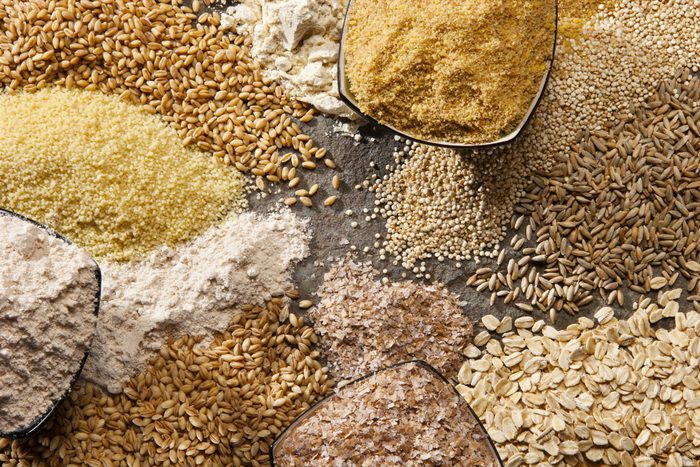
Whole grains
Barley, whole wheat, farro, popcorn: They’re just a few examples of whole grains, which are rich in prebiotics. “Their healthy fiber feeds good bacteria in our bodies so it can flourish,” says Small. In addition to whole grains, foods like fruits and veggies, including bananas and artichokes, for example, are other sources of prebiotics.
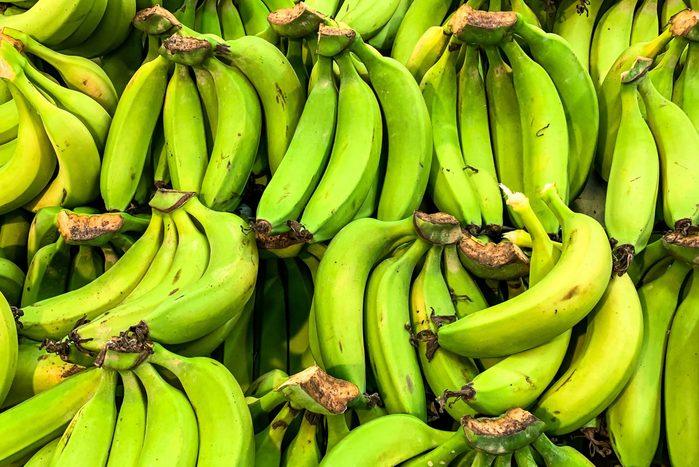
Resistant Starch
Stasha Washburn, CHHC, founder of The Period Coaching School, suggests including lots of resistant starch like green bananas, cooked potatoes or rice, and some beans, legumes and cashews. “They all travel deeper into the intestines to feed that deeper gut bacteria, and help reduce insulin resistance all of which help our hormonal balance and vaginal health reducing infections and overgrowth,” Washburn says.
Additional writing and reporting by Katie Bressack
Follow The Healthy on Facebook, Instagram, and Twitter. Keep reading:
